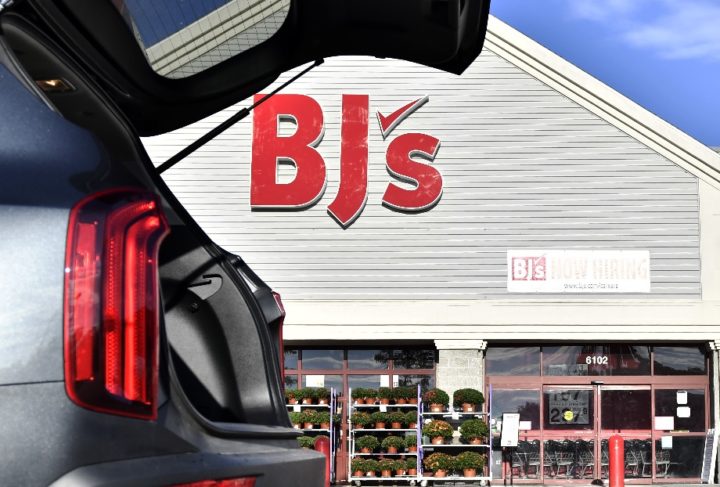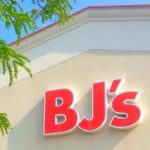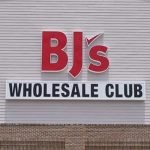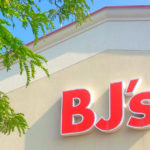
Pennsylvania resident John Myers is nothing if not tenacious. Eight years after accusing BJ’s Wholesale Club of overcharging him a total of 38 cents by incorrectly assessing sales tax on items he bought with coupons, an appeals court has once again upheld a ruling in his favor, entitling him to the quarter, dime and three pennies that he’s been fighting for since 2013.
The Commonwealth Court of Pennsylvania last week concluded that a judicial panel was correct in ruling last year that the state owed Myers a refund, because BJ’s collected sales tax in several transactions where it shouldn’t have.
In Pennsylvania, the amount of sales tax owed at the register is supposed to be calculated after all manufacturer’s and store coupons are applied. But several times at a Downingtown, Pennsylvania BJ’s in 2012 and 2013, Myers used coupons on items including Glade PlugIns, Tide detergent and Air Wick refills, and was charged sales tax based on the items’ full price. He complained, BJ’s refused him a refund, so he sued.
The amount at issue was only 38 cents. But Myers pursued the case as a class action, accusing BJ’s of making it a “regular practice to improperly charge all customers tax on the full price of discounted taxable purchases,” potentially collecting plenty of money from unsuspecting shoppers, that it wasn’t required to turn over to the state.
The dispute ultimately came down to something of a technicality. The state Department of Revenue said a cash register receipt must itemize the coupons used and clearly indicate on which products they were applied, in order to determine whether the coupons were used on taxable or nontaxable items. If the receipt does not make this information clear, retailers must err on the side of the state and collect sales tax on the full price of the products.
The BJ’s receipts provided to Myers merely listed “SCANNED COUP” to indicate each coupon that was applied, without specifying the products to which they were applied. So, the state argued, BJ’s properly collected sales tax on the pre-coupon totals.
Myers argued that his three transactions in question contained only taxable items, so any coupon he used would have reduced his taxable total regardless of whether his coupons were itemized on his receipt. And besides, does the fact that BJ’s decides not to print detailed receipts mean that BJ’s can use that to legally justify overcharging its customers?
A judicial panel last year decided in favor of Myers, in a ruling that the state then appealed to the full court, which has now upheld the panel’s ruling. Refuting the state and BJ’s contention that “a reduction does not reduce the purchase price if it is not linked to a specific item,” the court pointed out that “every discount, by definition, reduces the purchase price.” In its majority opinion, the court rejected the state and BJ’s argument “that every receipt, without exception, must specify the item for which a discount is given in order to qualify for a sales tax exclusion… Therefore, the receipt is sufficient under the specific facts of this case to demonstrate Taxpayer’s entitlement to the refunds he seeks.”
For what it’s worth, the court’s ruling was not unanimous. In a minority opinion, a dissenting judge argued that the state’s requirement that coupons used and items purchased be linked on a receipt is necessary for the state to ensure that retailers are collecting enough sales tax. If Myers “is unsatisfied with this business practice,” the judge wrote, “he can take his business elsewhere, and shop at a vendor that has such capability of imposing and collecting sales tax on a discounted price.”
But the majority rules, so the court has entered a judgment in favor of Myers and against state tax authorities in the amount of 38 cents.
And it’s still not over yet. Now that Myers has been cleared to collect his cash, his dormant class action lawsuit against BJ’s that was paused pending the outcome of this case, is cleared to resume. If that case is successful, Myers could win a judgment on behalf of himself and all Pennsylvania residents similarly overcharged, in an amount to be determined at trial.
Presumably, that amount would be more than 38 cents. So Myers’ eight-year battle has, so far, resulted in a big win with a small payout. But a win in his class action suit could make winning on principle, just a little more lucrative.
Image source: BJ’s Wholesale Club











What receipt anywhere specifically shows what coupon was on what product? Where I am, unless the coupon is applied immediately following the item it is for on the receipt, one would never know what products all the coupons on the receipt were applied to. I have seen it where a cashier wants the coupons with the product so they can check it against the product as they process the item and the coupon can be applied at the same time. But couponers, particularly those trying to push something through that shouldn’t, or are claiming products on apps such as Checkout 51 where some offers exclude the use of other coupons, throw hissy fits when the cashier wants them with an item….these couponers want them at the end of the receipt so that one can’t determine what product they were for so that they can fool the system (ie CO51 as one).